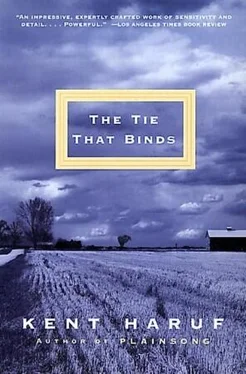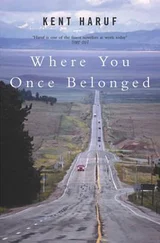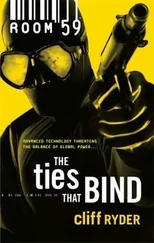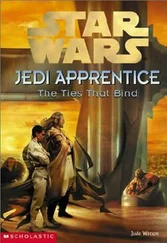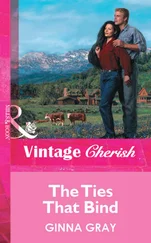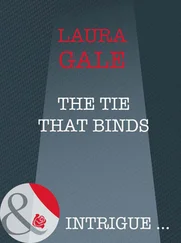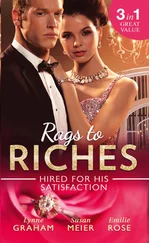After the service several people shook my hand and one or two tried to tell me that at least he had died doing something he enjoyed. But I didn’t listen to that. My dad should have lived for another twenty years. Then my mother took her friends down to the house to drink ice tea and to visit and commiserate while the box was being lowered into the hole, and I told John Baker to go on, that I would fill it in myself. That left only Edith there with me.
It didn’t take long to fill in the grave. The sand was loose and moist, making it easy to shovel. When I had finished packing it into a long mound behind the plain stone that reads JOHN ROSCOE FEB. 24, 1890—JUNE 11, 1950, I stood back with Edith to look at it.
Edith had been crying. She was wearing a new dress and she had done something to her hair, but she hadn’t been able to do anything about her face. Her face had gone to pieces. I put my arm around her.
“He asked me to marry him,” Edith said. “Did you know that?”
“Yes. He told me.”
“But I couldn’t. You understand, don’t you, Sandy?”
There was a little bit of wind in the cottonwood over us. The leaves were turning and washing in the wind. Below us on the road, cars were starting back toward town.
“Yes,” I said. “But understanding it and liking it aren’t the same things.”
“No,” she said. “No, they are not the same things.”
Then she was crying again, for the last time that I have known her to cry. There wasn’t much sound to it. I held her hand and felt like hell.
SO I WAS HOME again for good now. At twenty-two I took up the responsibility of managing the ranch my dad had made, the big cattle operation and the quarters of farmland. It was almost entirely clear of any debt when I took it over. There was plenty to do, though, and in short time I began to discover what it meant to be my dad in Holt County, to make decisions which afterwards you had to live with. Meanwhile my mother and I struck an edgy quiet kind of truce. We talked to one another when it was necessary. I took her out to eat about twice a month and sometimes to an acceptable movie in town when there was one, kept her car in tune and changed the snow tires, and on her part she held her tongue when I didn’t come home on Saturday nights. We avoided any topic that would take us back to that other June. That lasted about two years.
Then in the spring of 1952 we had another fight. It was one evening during supper, after steak and potatoes but before the dessert, that my mother dropped some news on me, an announcement she wanted to make. She said she preferred that I hear it from her before someone else had the chance to tell me and get it all wrong.
“I’m thinking of marrying again,” she said.
I took a drink of coffee and lit a cigarette. “Okay,” I said. “Do whatever you want.”
“I intend to. But I wanted to discuss it with you first. It will mean some changes in both our lives.”
“Not in mine,” I said. “I’m not marrying him.”
“Now that’s precisely what I was afraid of. Must you always be so pigheaded? You make me tired.”
“I said for you to do what you wanted. Isn’t that enough?”
She got up and cut two wedges of hot apple pie and scooped ice cream onto them and brought them to the table. I started to eat mine.
“You haven’t asked me who he is. Don’t you care who I marry?”
“I figured you would tell me.”
“All right,” she said. “It’s Wilbur Cox.” She was good and angry now, shoving Wilbur’s name across the table at me like it was a court summons, a sharp slap in the face.
“Congratulations,” I said. “I hope you’ll be happy with him.”
“As if you cared.”
“Sure, I do. But you can’t live out here with him. I don’t want Wilbur Cox messing about.”
“Don’t concern yourself. We intend to build a new home in town.”
“Your ice cream’s melting,” I said.
I got up then from the table and put my hat and coat on. The ice cream was melting on her pie, running down the sides and puddling in the dish.
“I’m not finished talking to you,” she said.
“I’ll be at the tavern.”
“But it’s not Saturday night.”
“No, it’s Wednesday. And don’t wait up: the tavern doesn’t close till midnight.”
I suppose I should explain. I don’t expect you to like my response to her little news — she certainly didn’t like it — but you might try to understand my side of it some. It was less than two years after my dad had died — that’s what bitched it all for me. A month less than two years. Hell, she had waited longer than that after her first husband died, Jason Newcomb, that miserable bank teller who hanged himself in the potato cellar. For me, my dad was still as clear and present everywhere about the place as if he had gone just the day before. He was still there for me wherever I was, whatever I was doing, working cattle or fixing fence, and it seemed to me that he should have been enough man for any woman to last a lifetime.
Now I suppose that’s an illogical, an unsound way to think, but that’s how I felt about it. And I didn’t have the slightest notion that she even knew Wilbur Cox to marry him. Of course I understood that she knew him — everybody knew Wilbur Cox. He sold life insurance. He had that tidy little brick office on Main Street in Holt and drank coffee everyday with the boys in the cafe. He was tall, stringy as a green bean; he oiled his hair. Maybe you will understand what I mean about him if I tell you that he is one of those guys who likes to shake hands a lot, shaking your hand with both of his. But like I’ve said before, my mother was not stupid. She no doubt already had Wilbur Cox picked out. She must have seen very clearly in advance that Wilbur was going to be the form of husband she could manipulate, rule and run, make him stay home and attend to business, and she did all that. He fit into her scheme like an obedient poodle. Well, there was always something grasping about her, still is for that matter. She can’t let go. She has to go on striving at things, refusing to let them be as they are. She can’t abide them until she has changed them to meet her own mold. I don’t believe it makes her happy, though.
Anyway, I relented a little in December. When the solid brick house at the edge of town was complete with carpet and paint, I stood up for her at the wedding. I gave her away. I even agreed to sell a dryland quarter to pay for the house.
THERE WAS at least one other thing to happen in 1952 that has some bearing on this story. It must have been October, but you can check his gravestone if it makes a lot of difference to you: old Roy Goodnough died down the road from us. He went in his sleep. Edith went in to his bedroom that morning to dress him for the day in his overalls, and she found that she wasn’t ever going to have to do that again. He was as rigid as stone; his mouth was locked open, like a piece of box iron. So she drew the sheet up over his face and went downstairs to call me.
“It’s over,” she said.
“I don’t know what you mean.”
“He died last night. Will you help me make the arrangements?”
I wasn’t surprised she called me. Since the death of my own dad I had been checking on her once a week, stopping by the Goodnough house in the early evening before I went home to supper. The old man would already be fed and put to sleep, and Edith and I would sit in the porch swing, visiting, passing that best hour of any day together while the barn swallows hunted bugs and the locusts sang from the elm trees. She began to keep beer on hand in the refrigerator, too, because she knew I liked it in the evening after work, and I would drink beer while we talked and pushed the swing a little. Occasionally on those evenings she would recall the things she knew about my dad, and it seemed to help us both get over him.
Читать дальше
